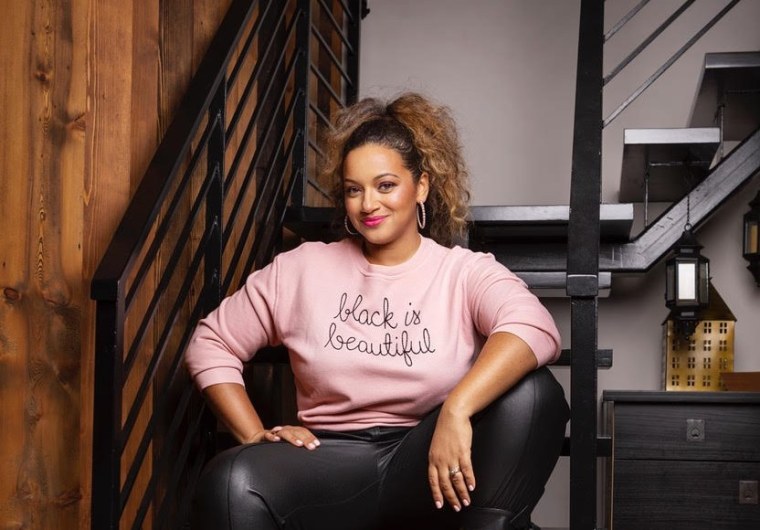Rachel Rodgers believes every woman can — and should — be in the millionaire’s club.
The vast majority of the world’s millionaires, 85 percent, is male. That’s largely due to factors like the gender wage gap and sexism in the workplace. But Rogers also believes women need to start believing more in their own money-making potential.
According to Rodgers, a lawyer and author of “We Should All Be Millionaires: A Woman’s Guide to Earning More, Building Wealth, and Gaining Economic Power,” building wealth is all about potential — and everyone has it.
Rodgers, who founded the company Hello Seven, noted that when she started her law practice 11 years ago, she had no financial assets, no savings, no investments and a lot of student loan debt.
“Here’s what I did have: I had a law degree. I had legal skills. I had some experience working with clients. And, I had unlimited income potential,” said Rodgers. “You’re constantly battered with media messages telling you women are financially incompetent. You're not bad with money — you just live in a society that is determined to make you think that you are. Don’t believe the hype: there are countless studies showing that women are actually better at investing than men.”
In September 2010, Rodgers decided to take her financial fate into her own hands by launching her own law practice. She started with three clients who were friends that had come to her for legal referrals. Over the course of the next few years, Rodgers was able to grow her business to the point where it was bringing in around $700,000 per year.
Rodgers specialized in intellectual property law, and many of her clients were small business owners. After working with them, she began to realize that many of them were also asking her for tips on monetizing their intellectual property. More importantly, she realized that she loved helping them monetize their pursuits. This led to her starting her second company, Hello Seven, which helps marginalized people determine the best ways to grow their own wealth.
“Once upon a time, I had a 480 credit score,” says Rodgers. “Today, I run a $10 million dollar business devoted to helping marginalized people build wealth.”
So where to begin if you want to have at least seven zeros in your bank account?
While there are plenty of tips out there on how to save and how to cut your spending habits, Rodgers gave a seemingly idealistic suggestion: make more money. While this may seem unattainable, she suggested that by only focusing on cutting back, many women are limiting their potential by wasting mental space on what they can’t do instead of what they can do.
“Statistically, building a business is the realistic, faster option to create sustainable wealth, even if you are starting from scratch,” says Rodgers. “When you build a business, you are building a valuable asset that can create cash flow every month.”
The first step, she said, is to classify your assets into categories: emotional, creative, professional and social. This way you can better understand your strengths and weaknesses and how they can work for you. If you’re wondering why financial assets aren’t listed, this is because Rodgers emphasizes the ability to build no matter where you’re starting out.
Emotional:
The resilience earned after years of overcoming obstacles is an example of an emotional asset. Learn to cultivate it and use it for your own benefit, said Rodgers.
Creative:
If you’re constantly the person coming up with out-of-the-box solutions, that’s as much of a creative asset as the ability to paint. Rodgers gave the example of someone who is constantly coming up with brilliant money-managing spreadsheets or perfectly organizing their friends’ closets. Both of these actions could be turned into consulting businesses.
Professional:
This is your years of experience, a through-and-through knowledge of a field and a knack for delivering results.
Social:
List out those who can help you. Whether you have a network of friends or three professional contacts who’d do anything for you, these are social assets you should use.
What next?
After you’ve made a list of your assets, Rodgers encouraged women to reflect on the strengths that come naturally to them. This could range from motivating your friends when they need it most to making excel sheets to keep you organized.
“Once you have a better understanding of those strengths, write down a list of everything you could do to make money based on those strengths,” said Rodgers.
Finally, and this is important: choose and only focus on one. “Turn this strength into a business,” suggested Rodgers.
“If you do what most of these experts tell you to do — cut expenses, stop drinking lattes, save, save, save, and wait a long time — it will take you, on average, 32 years to save your way to approximately $3 million,” said Rodgers. “The average sustainable business, on the other hand, is worth $12 million within seven years.” Of course, these factors are depending on how much you are contributing to your savings and where you live.
Rodgers went on to say that your business can start as a side hustle — the most important thing is just to find something and stick with it. Rodgers pointed to a client who was constantly being called on to help organize others’ homes or closets, especially if they were moving. Not only did her client love this work, she was good at it. She started a consulting business that allowed her to charge for her services, and she built this consulting business by hiring more people.
“Whatever you want, take one step today to set things in motion,” says Rodgers. “Even if things suck right now, keep going. You could be one decision away from starting a side-hustle that one day becomes a sustainable business.”
